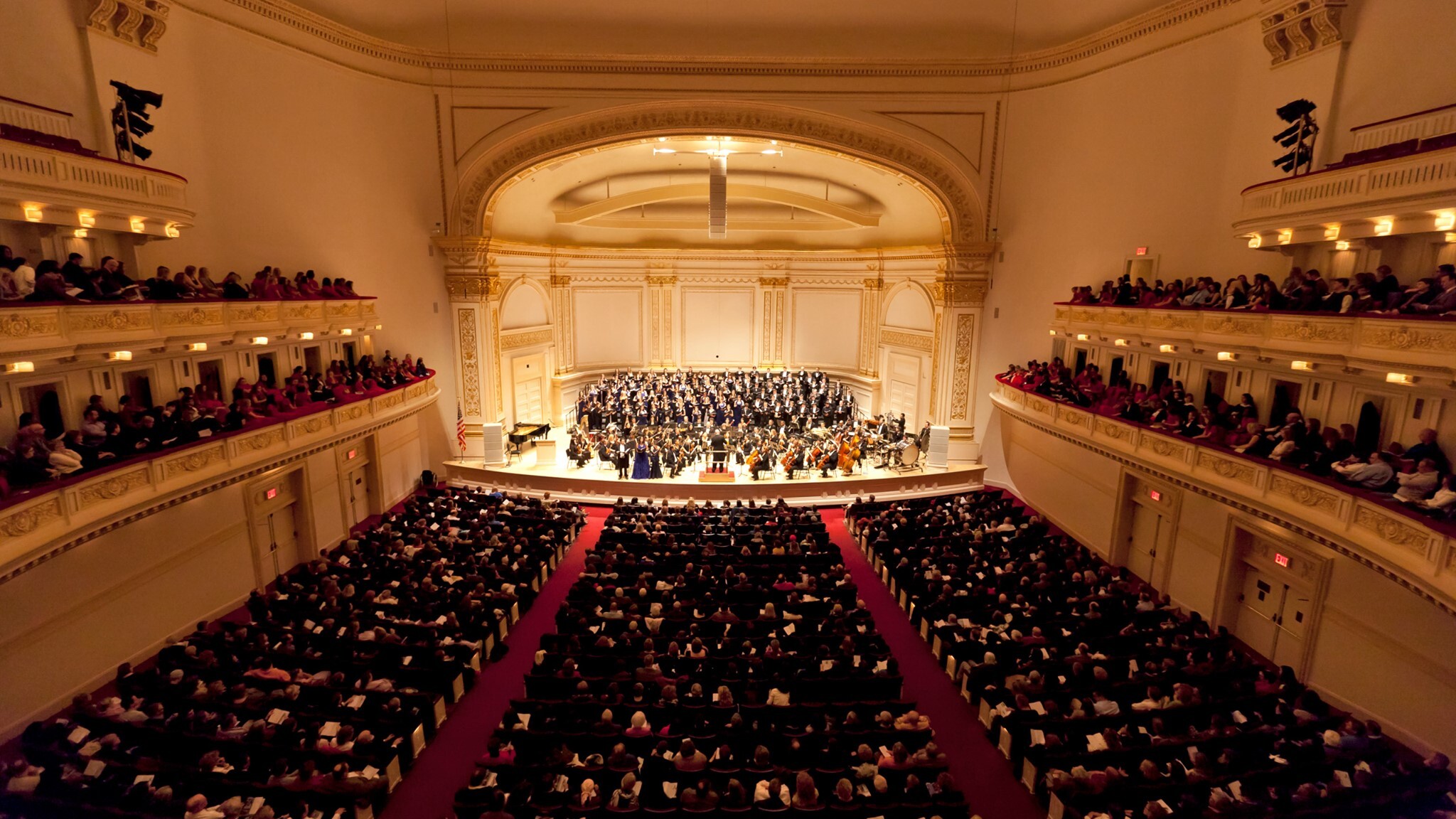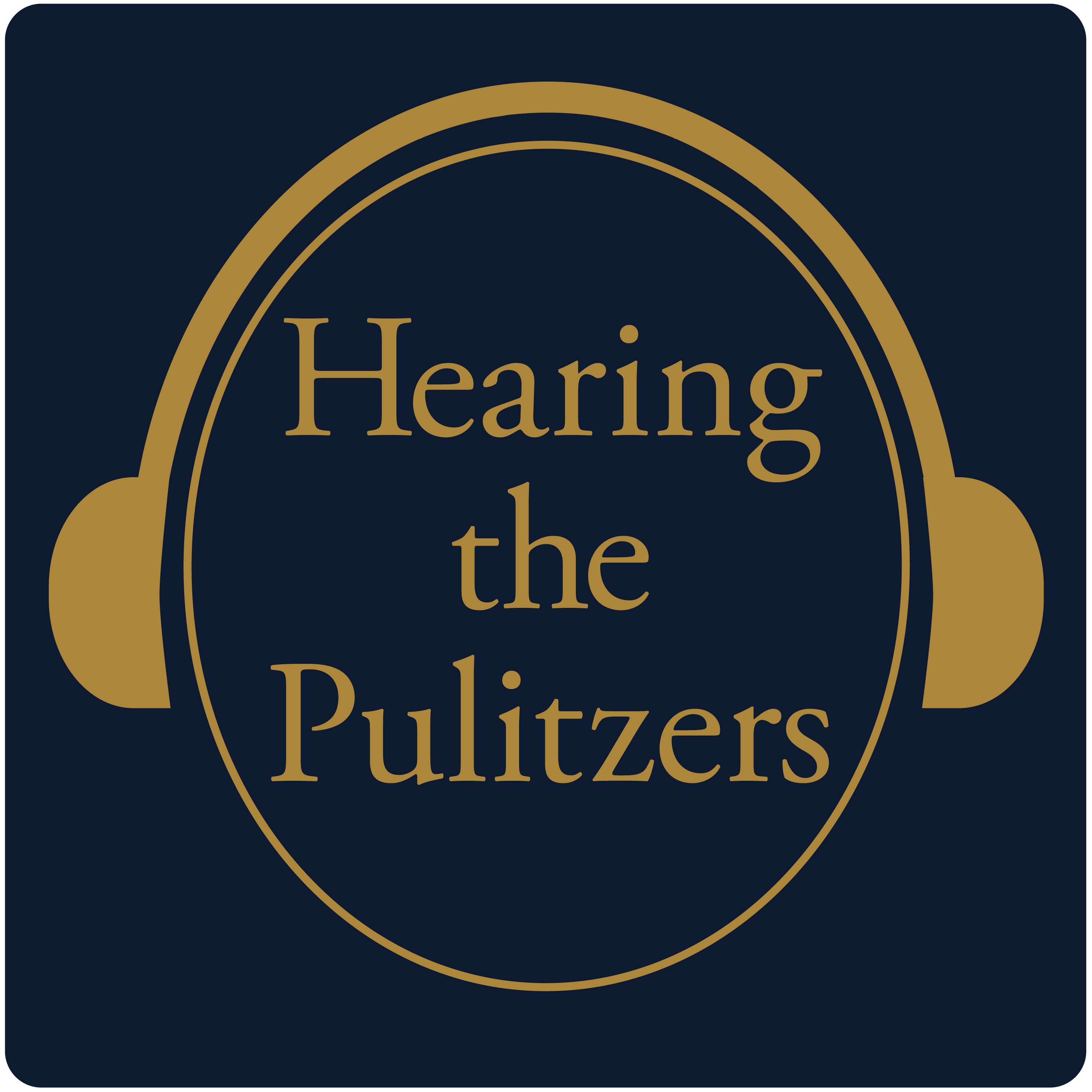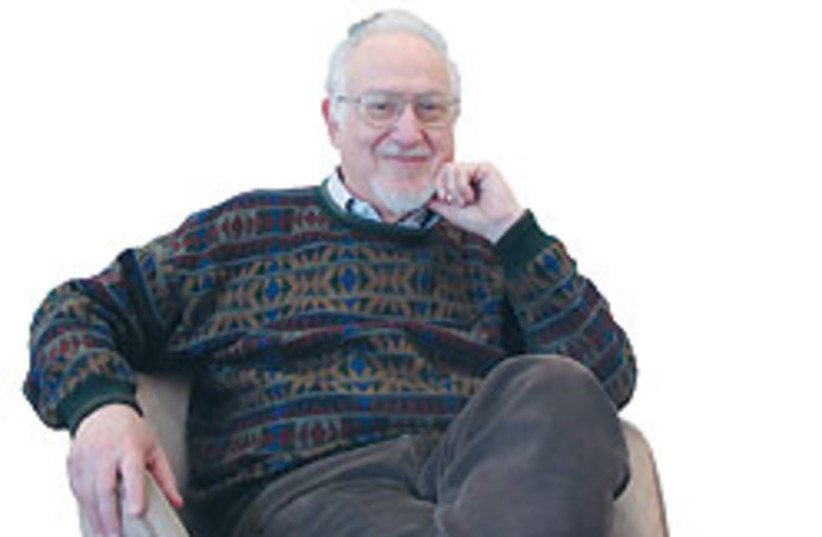Episodes
Thursday Dec 22, 2022
Episode 39 - 1981: No Winner
Thursday Dec 22, 2022
Thursday Dec 22, 2022
In this episode, Dave and Andrew cover the fourth and final time (so far) that the Pulitzer Board decided not to award a music prize. Unlike 1965, which was the last year they didn't award the prize, 1981 wasn't mired in controversy. So why did the Pulitzer Board not award a prize and what should have won? As a bonus, Dave and Andrew also discuss lessons learned after covering 40 years of the Pulitzer Prize and make predictions for what's to come!
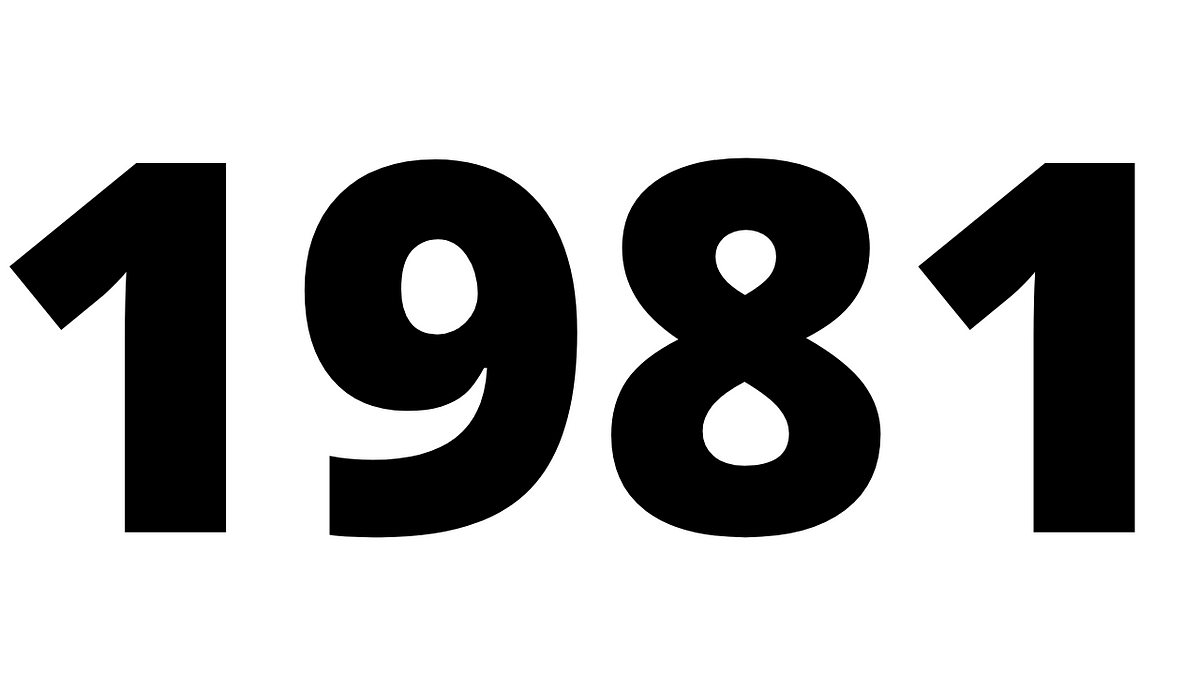
Friday Nov 18, 2022
Episode 38 - 1980: David Del Tredici, In Memory of a Summer Day
Friday Nov 18, 2022
Friday Nov 18, 2022
In this episode, Dave and Andrew discuss a composer Aaron Copland called a "rare find among composers — a creator with a truly original gift." Will they agree with Copland about David Del Tredici's In Memory of a Summer Day?

If you'd like more information about David Del Tredici, we recommend:
- Contemporary Music Review's issue on New Tonality, volume 6, issue 2 (1992), including Paul Moravec's interview with Del Tredici.
- J. D. Dolan's article on Del Tredici in BOMB, No. 60 (Summer 1997): 42-45
- James E. Chute's dissertation "The reemergence of tonality in contemporary music as shown in the works of David Del Tredici, Joseph Schwantner, and John Adams" (University of Cincinnati, 1991)
- A recent interview with Del Tredici
Friday Oct 21, 2022
Episode 37 - 1979: Joseph Schwantner, Aftertones of Infinity
Friday Oct 21, 2022
Friday Oct 21, 2022
In this episode, Andrew and Dave explore a composer they first encountered with his music for wind band. In his Pulitzer-winning work, Schwantner fashioned a composition critics have described as creating a "poetic illusion—but only an illusion— of movement." Will this illusion win them over?

If you'd like more information about Schwantner we recommend:
- James Chute's dissertation "The reemergence of tonality in contemporary music as shown in the works of David Del Tredici, Joseph Schwantner, and John Adams" (University of Cincinnati, 1991)
- Schwantner's website
-
Cynthia Folio's article "The synthesis of traditional and contemporary elements in Joseph Schwantner's 'Sparrows,'" Perspectives of New Music, vol. 24, no. 1 (1985): 184-96.
Monday Sep 26, 2022
Episode 36 - 1978: Michael Colgrass, Déjà Vu
Monday Sep 26, 2022
Monday Sep 26, 2022
In this episode, Dave and Andrew record their first live podcast event! In front of the Kansas City Conducting Symposium, they discuss an unusual work for the Pulitzers in that Michael Colgrass featured the percussion section of the orchestra. Will they enjoy this departure from standard orchestration?
If you'd like more information about Colgrass, we recommend:
- Colgrass's autobiographies Adventures of an American Composer and My Lessons with Kumi
- James Donald Broadhurst's dissertation "The early drum-melodic music of Michael Colgrass and the evolution of the Colgrass drum" (The Ohio State University, 2005)
Wednesday Sep 07, 2022
Episode 35 - 1977: Richard Wernick, Visions of Terror and Wonder
Wednesday Sep 07, 2022
Wednesday Sep 07, 2022
In this episode, Dave and Andrew discuss a Pulitzer winner that has so fallen out of the repertoire that there is no commercially available recording. But that doesn't mean there aren't interesting things to learn about the state of music in the late 1970s! For example, why was there an extra meeting of the jury, and did all the members participate in the deliberations? Listen to find out!
If you'd like more information about Richard Wernick, we recommend:
- This interview with Wernick from 2021 with the Network for New Music
- Michael Rose's dissertation "Unity in diversity: the synthesis of compositional approaches in Richard Wernick's Vision of terror and wonder"
- Bruce Duffie's interview with Wernick
Please rate and review us on Apple Podcasts!
Thursday Aug 18, 2022
Episode 34 - 1976: Ned Rorem, Air Music
Thursday Aug 18, 2022
Thursday Aug 18, 2022
In this episode, Dave and Andrew explore a composer better known for his songs who won for an orchestral work, Ned Rorem. They may enjoy The Nantucket Songs but what will they think about Air Music?
And was Air Music actually supposed to win the Pulitzer Prize??? Tune in to find out.
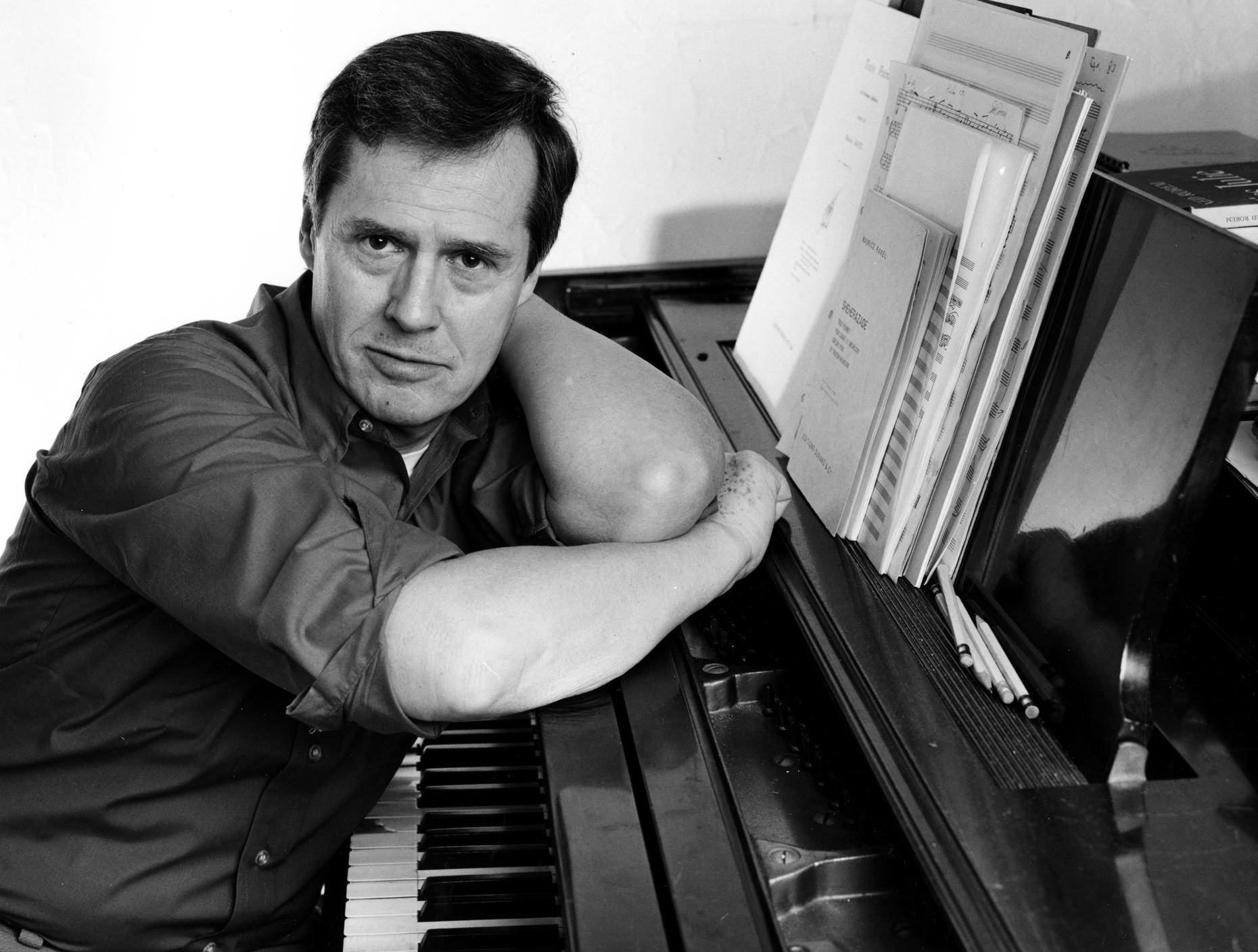
If you'd like to know more about Ned Rorem, we recommend:
- Ned Rorem, The Paris and the New York Diaries, 1951-1961, Open Road Media
- J.D. McClatchy's 1999 interview with Ned Rorem in The Paris Review, Issue 150
- A Ned Rorem Reader (New Haven: Yale University Press, 2001)
Monday Aug 01, 2022
Episode 33 - 1975: Dominick Argento, From the Diary of Virginia Woolf
Monday Aug 01, 2022
Monday Aug 01, 2022
In this episode, Dave and Andrew explore the first song cycle to ever win the Pulitzer Prize, Dominick Argento's From the Diary of Virginia Woolf. Argento always remarked that his music balanced between his desire for fantasy and his need for control. Do Dave and Andrew think this work has that balance?
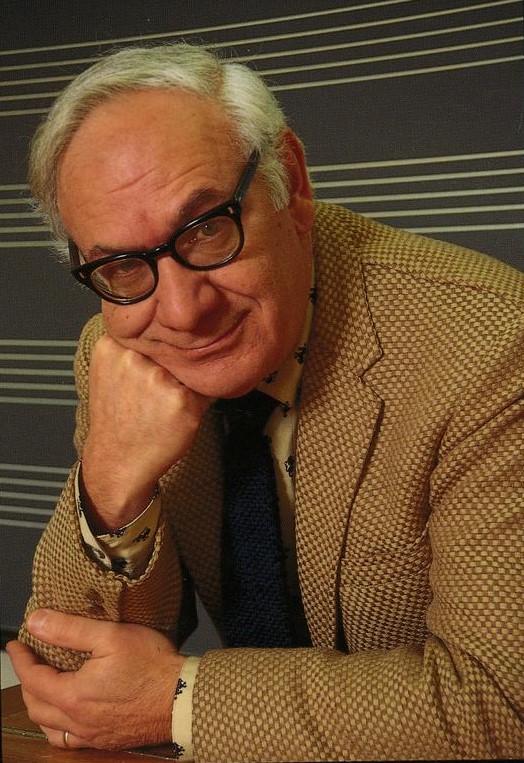
If you'd like more information about Dominick Argento, we recommend:
- Jacquelyn Matava's dissertation "Dominick Argento's From the Diary of Virginia Woolf: A Preparation Guide for Performers" (Indiana University, 2014)
- Russell Platt's New Yorker article "The Elegant Musical Vessels of Dominick Argento"
- Argento's memoir, Catalogue Raisonnâe as Memoir: A Composer's Life (University of Minnesota Press, 2004)
Please write a review of us on Apple Podcasts or wherever you listen to the podcast -- thanks!
Saturday Jul 16, 2022
Episode 32 - 1974: Donald Martino, Notturno
Saturday Jul 16, 2022
Saturday Jul 16, 2022
In this episode, Dave and Andrew discuss a composer who is usually considered a 12-tone composer, but who also rejected labels. He famously told the New York Times in 1997 that "If anyone writes program notes and says I am a Serial or a 12-tone composer, I am infuriated." How do Dave and Andrew label Martino's music? How does Notturno fit into the style of other winners in the early 1970s?
If you'd like more information about Donald Martino and Notturno, we recommend:
- James Praznik's 2022 dissertation "Dreaming of Single Hexachords in an Infinite Expanse: An Analysis of Movement II of Donald Martino’s Notturno"
- The collection of articles in tribute to Martino in Perspectives of New Music 29/2 (Summer 1991)
- Bruce Duffie's interview with Martino
Monday Jun 27, 2022
Episode 31 - 1973: Elliott Carter, String Quartet No. 3
Monday Jun 27, 2022
Monday Jun 27, 2022
In this episode, Dave and Andrew revisit Elliott Carter, who won his first Pulitzer in 1960. They awarded his String Quartet No. 2 two big thumbs up. Will they be as enthusiastic about Carter's String Quartet No. 3?

If you'd like more information about Elliott Carter and his String Quartet No. 3, we recommend:
- This performance of the String Quartet No. 3 by the Jack Quartet.
- Andrew W. Mead's article "Pitch Structure in Elliott Carter's String Quartet No. 3" in Perspectives of New Music, vol. 22, no. 1/2 (Autumn, 1983 - Summer, 1984): 31-60
- Laura Emmery's book Compositional Process in Elliott Carter's String Quartets: A Study in Sketches (Routledge, 2020)
Sunday Jun 05, 2022
Episode 30 - 1972: Jacob Druckman, Windows
Sunday Jun 05, 2022
Sunday Jun 05, 2022
In this episode, Dave and Andrew look through Windows at Jacob Druckman's compositional style and legacy in American music. Druckman taught at Yale and the Aspen Music Festival for years, shaping generations of young composers, and coined the term "New Romanticism" when he curated the Horizons Festivals at the NY Philharmonic in the mid-1980s. Yet today, his attempts to merge modernist techniques with audience-friendly sounds are largely forgotten. Should they be?

If you'd like to know more about Druckman, we recommend:
- Nicholas Papador's dissertation Jacob Druckman: A Bio-Bibliography and Guide to Research, Northwestern University, 2003.
- Druckman's interview in Cole Gagne and Tracy Caras's Soundpieces: Interviews with American Composers (Scarecrow Press, 1982)
- Bruce Duffie speaks with Jacob Druckman
